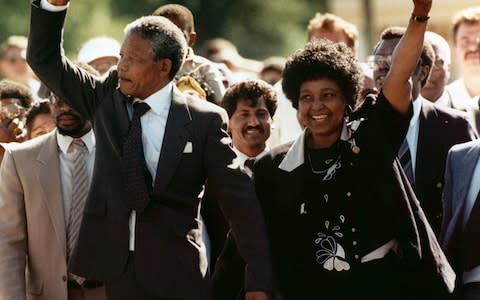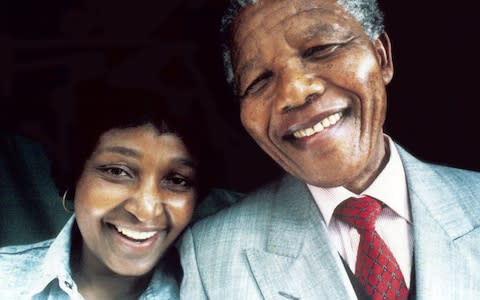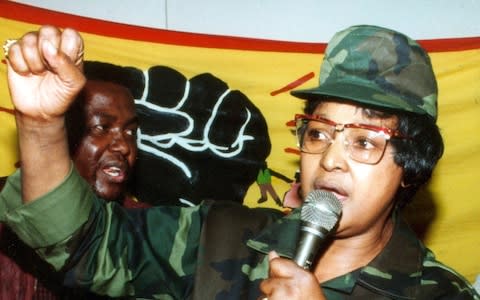Anti-apartheid campaigner Winnie Mandela dies aged 81

Archbishop Desmond Tutu said he and generations of activists were “deeply” inspired by Winnie Madikizela-Mandela, who died in a Johannesburg hospital on Monday, despite controversies that dogged the anti-apartheid struggle veteran until her death.
“She refused to be bowed by the imprisonment of her husband, the perpetual harassment of her family by security forces, detentions, bannings and banishment,” Mr Tutu said in a statement on Monday. “May she rest in peace and rise in glory.”
Ms Mandela, who was often called “the mother of the nation,” had been in and out of the hospital since the beginning of the year, according to a statement released by her family on Monday, and died early Monday afternoon surrounded by family and loved ones.

“Mrs Madikizela-Mandela was one of the greatest icons of the struggle against Apartheid,” the statement said. “She fought valiantly against the Apartheid state and sacrificed her life for the freedom of the country.”
Ms Mandela was married to African National Congress leader and South Africa’s first president Nelson Mandela for nearly four decades, though most of their marriage was spent apart after Mr Mandela was imprisoned on Robben Island.
As an anti-apartheid struggle activist, Ms Mandela fought hard for her husband’s release, and images of the couple holding hands as Mr Mandela walked out of prison in 1990 helped usher in the arrival of the democratic era in South Africa.

During her husband’s imprisonment, however, Ms Mandela’s fight in the liberation struggle became mired in controversy.
In 1986, she was widely linked to "necklacing", when suspected traitors were burnt alive by a petrol-soaked car tyre being put over their head and set alight, after she endorsed the practice in a speech.
In 1991, Ms Mandela was convicted of kidnapping and assault, after her bodyguards murdered a 14-year-old boy who had been accused of being an informer. Stompie Seipei, was found near her Soweto home with his throat cut.
Her six-year jail term was reduced on appeal to a fine.
Ms Mandela’s six-year jail sentence was reduced to a fine and she later denied any involvement when she appeared at the Truth and Reconciliation hearings.

Ms Mandela separated from Mr Mandela, with whom she had two daughters, in 1992.
She subsequently served briefly as a deputy minister in his administration, but was sacked after allegations of corruption emerged.
Despite these difficulties, many South Africans continued to support Ms Mandela in her later years.
“The struggle could never have been what it became without the undying zeal and passion of Mam' Winnie both for the country and our people,” the ANC Women’s League said in a statement on Monday. “As a woman she kept the family and the hopes of all black people alive.”

Political party leaders, government ministers and neighbors gathered outside her home in Soweto on Monday evening upon hearing the news of her death.
“She’s been a mother of the nation,” Ms. Mandela’s neighbor Duduzile Mhkize told a local news channel. “She’s done great things for the country. She’s done great things for the world.”
Though she had criticized the African National Congress party in recent years, Ms Mandela remained loyal to the beleaguered party she supported weeks before her death.
After being discharged from a Johannesburg hospital in January, she appeared with President Cyril Ramaphosa at a polling station in Soweto in March.
“I’m always with my president. We are going to surprise the country,” Ms Mandela told the media. “I’m back.”

 Yahoo News
Yahoo News 
